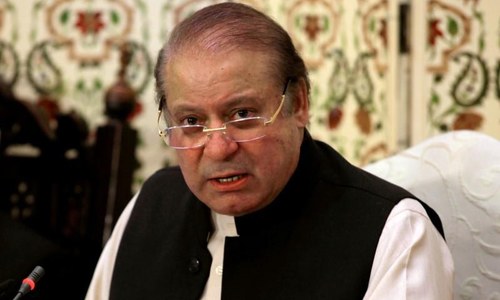IT is no secret that two competing political narratives have been pulling the PML-N and its followers in diametrically opposite directions ever since party leader Nawaz Sharif was forced to step down as prime minister in 2017.
Although the anti-establishment narrative of Nawaz Sharif has dominated PML-N politics, the ‘moderates’ led by his younger brother and current party president Shahbaz Sharif never lost hope that they would be able to convince him to drop his confrontational stance and reconcile with the security establishment to return to power. Shahbaz Sharif’s remarks in a recent TV interview pertaining to a ‘grand dialogue’ among all ‘stakeholders’ (presumably the PML-N and the establishment) to steer the country towards calmer waters was a part of the same effort.
There is no doubt that the recent drubbing the PML-N received at the hands of the ruling PTI in AJK and Sialkot has triggered a heated debate within the party on the effectiveness — or lack of it — of the anti-establishment narrative of Nawaz Sharif which has been advanced by his heir apparent Maryam Nawaz. But it doesn’t mean that the party is ready to change overnight. The erstwhile prime minister did well to step in to end the confusion created by the party president’s interview and nip in the bud any speculation that the PML-N plans to revisit its narrative of civilian supremacy.
Given the country’s political history, it’s hard for many observers of politics to imagine a party returning to power without backing from the establishment. Therefore, it isn’t surprising to see many PML-N legislators and ticket hopefuls blaming the party’s anti-establishment stance for its defeat in the recent polls, and ruling out its chances in the 2023 elections unless it mends fences with the powers that be. But others have questioned this stance and asked if, going by past experience, making compromises is any guarantee that the PML-N will return to power let alone complete a term in office.
The younger Sharif brother’s contention that Nawaz Sharif could have been elected prime minister for a fourth term had the party evolved a consensus strategy before the elections has also been challenged by those who believe the party supremo would not have had to exit if the establishment wanted him to return to power. However, this does not mean that an anti-establishment stance and its acceptance in Punjab will bring the PML-N back to power, as it is unthinkable that a political party that has strained relations with those who call the shots can force its way back to the top. The road ahead for the PML-N is going to be long and bumpy no matter which narrative it follows. If supremacy of the Constitution and the rule of law are what the party genuinely wants, then it must prepare itself for further pitfalls as it struggles to uphold democratic principles.
Published in Dawn, August 4th, 2021












































